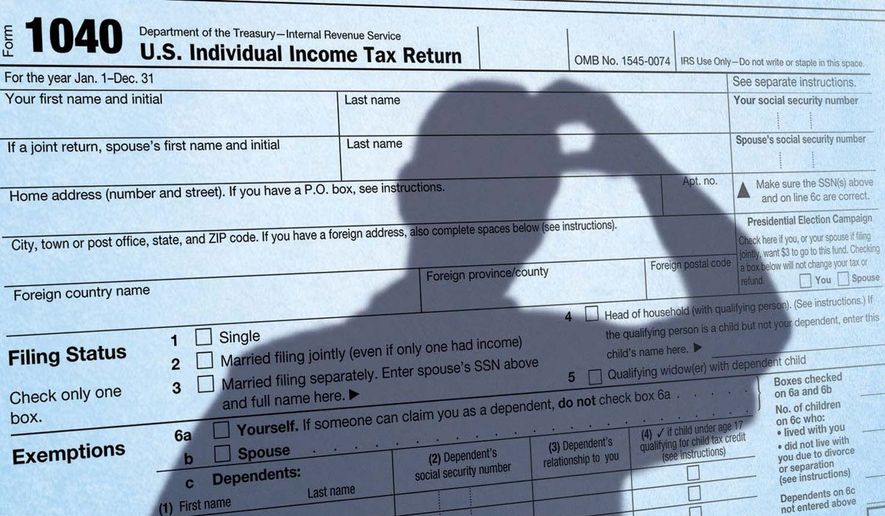OPINION:
Millions of Americans entrust their financial information to private accountants, lest they fill out the dreaded 1040 tax form on their own. When things go wrong, and they’re overcharged, they sometimes lodge a complaint with the Internal Revenue Service.
That doesn’t help much. The Treasury Department inspector general, in a report this month, finds that the IRS doesn’t “ensure that complaints are accurately and consistently processed.” A review of the 8,354 complaints received over the past two years discovered that half of the complaints sat in an unopened pile for 60 days or more. The IRS is in the business of extracting money, not obliging taxpayers.
Bureaucratic incompetence at the IRS is about as a surprising as a frigid January night in Fairbanks. The tax man will never provide good customer service, because he knows he doesn’t have to. Americans shouldn’t have to rely on professional tax-return preparers just to file a simple return.
Seventy million Americans pay specialists out of a fear of punitive fines and even time in the pokey. The U.S. Tax Code measures 73,954 pages and is just shy of 4 million words. Most people have more productive things to do with their time.
The National Taxpayers Union calculates that this complexity costs the U.S. economy $224 billion and 6.1 billion hours of lost productivity. Taxpayers spent $31.7 billion for tax-preparation software and other out-of-pocket costs this year.
Seventy-five years ago, the instructions on Form 1040 were a mere two pages. A tax return could be completed in only a few minutes’ time. Today’s 1040 is more than a hundred times more complex, and fewer than 10 percent of the taxpayers file a return without help.
Proposals to simplify the tax code include replacing it with a national sales tax or a flat tax on income. Typical rate projections would be around 17 percent to 20-some percent of income. The rate can stay low only as long as deductions, loopholes, credits and other baffling portions of the tax code go into the shredder.
Deductions are the greatest obstacle to reform. No homeowner wants to give up his mortgage-interest deduction, even if a lower overall rate would mean paying less.
Each obscure provision in the tax code was put there by an army of lobbyists to gain an advantage over the competition. Congress obliges in creating loopholes, to manipulate taxpayer behavior and reward favored industries. Accountants would howl because a flat tax or a national sales tax would render their arcane knowledge useless overnight.
There’s a ray of hope, albeit a dim one, in the years beyond 2016. On the Republican side, Texas Gov. Rick Perry proposed a version of a flat tax in 2011 that kept all the major deductions, and he’s likely to try again. Sen. Rand Paul of Kentucky floated another version of a flat tax with a tax rate of around 17 percent. Among Democrats, Gov. Jerry Brown of California pushed a flat tax in his 1992 bid for the nomination against Bill Clinton. Mr. Brown is said to be mulling a fourth run for the nomination against Hillary Clinton.
Taxpayers who think their accountant has flubbed a 1040 return won’t accomplishing anything but frustration by complaining to the IRS. Only grass-roots pressure to reform the system that Jimmy Carter rightly called “a disgrace to the human race” will work. This is the message for the presidential candidates, and it should be dispatched loud and clear.




Please read our comment policy before commenting.